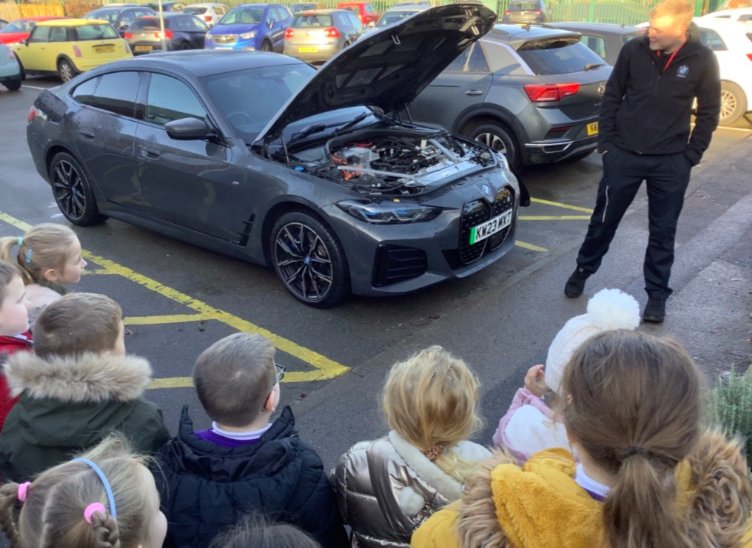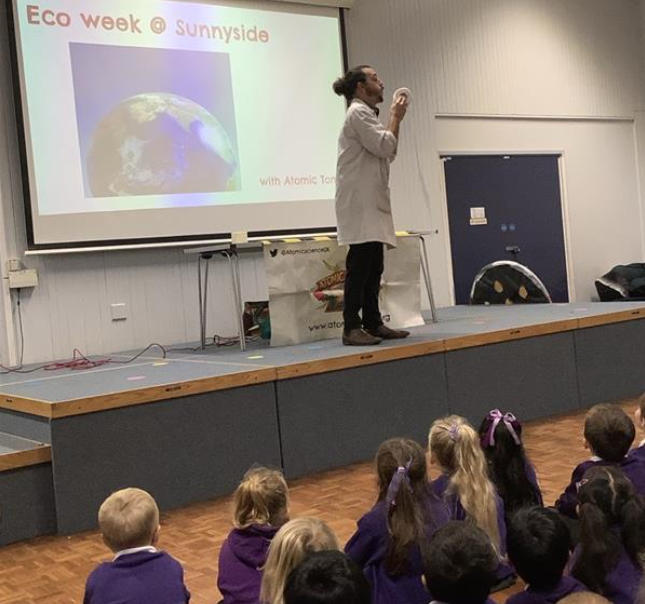Science
Science – Intent, Implementation and Impact
Intent
The Sunnyside Primary Academy science curriculum allows all pupils (SEND, disadvantaged and the more able) to achieve highly, whilst reflecting all aspects of our four key pillars: striving for excellence, developing vocabulary, building community, and expanding cultural experiences. The curriculum promotes ecological values and develops children’s scientific knowledge, reasoning and understanding of the universe. By following a well-structured, sequential curriculum, all pupils participate in fun, innovative, engaging and accessible scientific experiences, which help create inquisitive, enthused and knowledgeable pupils. Our science curriculum delivery is useful and innovative, whilst its content is taught progressively, systematically and explicitly enough for all pupils to acquire the specified knowledge and skills.
Striving for Excellence:
Our primary science curriculum inspires our pupils to believe that science should provide the foundations for understanding the world through the specific disciplines of biology, chemistry and physics. Our children are taught essential aspects of the knowledge, methods, processes and uses of science. In order to achieve this, we believe all pupils should be encouraged to recognise the power of rational explanation and develop a sense of excitement and curiosity about natural phenomena. The curriculum enables all pupils to acquire scientific knowledge, develop their scientific enquiry skills and apply these skills via scientific investigations following a well-structured, sequential curriculum.
Developing Vocabulary:
Our science curriculum encourages pupils to describe associated processes and key characteristics using technical terminology accurately and precisely. Through the progression of each unit, pupils develop an extended specialist vocabulary and demonstrate this through knowledge lessons, vocabulary acquisition, report writing, practical activities and class discussions. When completing skills lessons, whereby the children apply their scientific enquiry skills via practical investigations, the children are encouraged to work collaboratively and use their scientific vocabulary when discussing a line of enquiry.
Building Community:
In our science curriculum, we engage with our local community by inviting local engineers and members of the community - with scientific backgrounds - to meet our children and lead assemblies. We also encourage parents to get involved with science, through science based competitions during science week.
Expanding Cultural Experiences:
Our science curriculum helps reinforce our commitment to British Values and protected characteristics, as we are committed to providing a teaching environment conducive to inclusive learning. This is achieved by the children exploring a variety of multicultural scientists and celebrating their success during Black History Month. Women in Science Day is also celebrated through assemblies and activities. Ecological science is a core part of the curriculum, whereby ecological matters globally – including the COP events - are acknowledged and celebrated through scientific visitors and themed days.
Implementation
The curriculum follows a specified structure, using a prescribed sequence. Through each unit of study, children acquire scientific knowledge. Next, they develop their scientific enquiry skills and finally apply these skills via scientific investigations. The curriculum is planned and implemented through the use of sequential objectives, to ensure a logical, progression in attainment. This will enable pupils to understand key concepts as information is presented clearly, articulate discussion is promoted, and outcomes are specified. During lessons, children are engaged through kinaesthetic sessions and practical activities. This approach allows them to be creative and achieve highly by applying their knowledge and skills. Through the delivery of Ecologically Aware units, our science curriculum raises children’s awareness and understanding of the world around them.
Impact
The children experience excitement and creative opportunities through the many visitors and different investigations they participate in during science lessons, celebration days and science week. Children are engaged during science lessons and achieve their learning objectives. Through discussion and debate, the children work collaboratively to raise their understanding and apply their skills during investigations. Unit discussions promote the recounting of key skills, use of scientific vocabulary and recall of knowledge acquired at the end of each science unit. Pupil assessment is conducted at the end of each unit, so the impact of learning can be monitored, to ensure all pupil groups are progressing effectively against their current expectations and outcomes for each year group. Our children leave primary school with a heightened ecological awareness, a sense of environmental responsibility and an environmentally sound ethos embedded in their character.
The Image below is from our COP 28 Eco Science celebration week. BMW engineers visited the school to discuss electric cars and how they can help reduce the global carbon footprint
Atomic Tom in school, leading a series of fantastic Eco Science workshops and Assemblies


